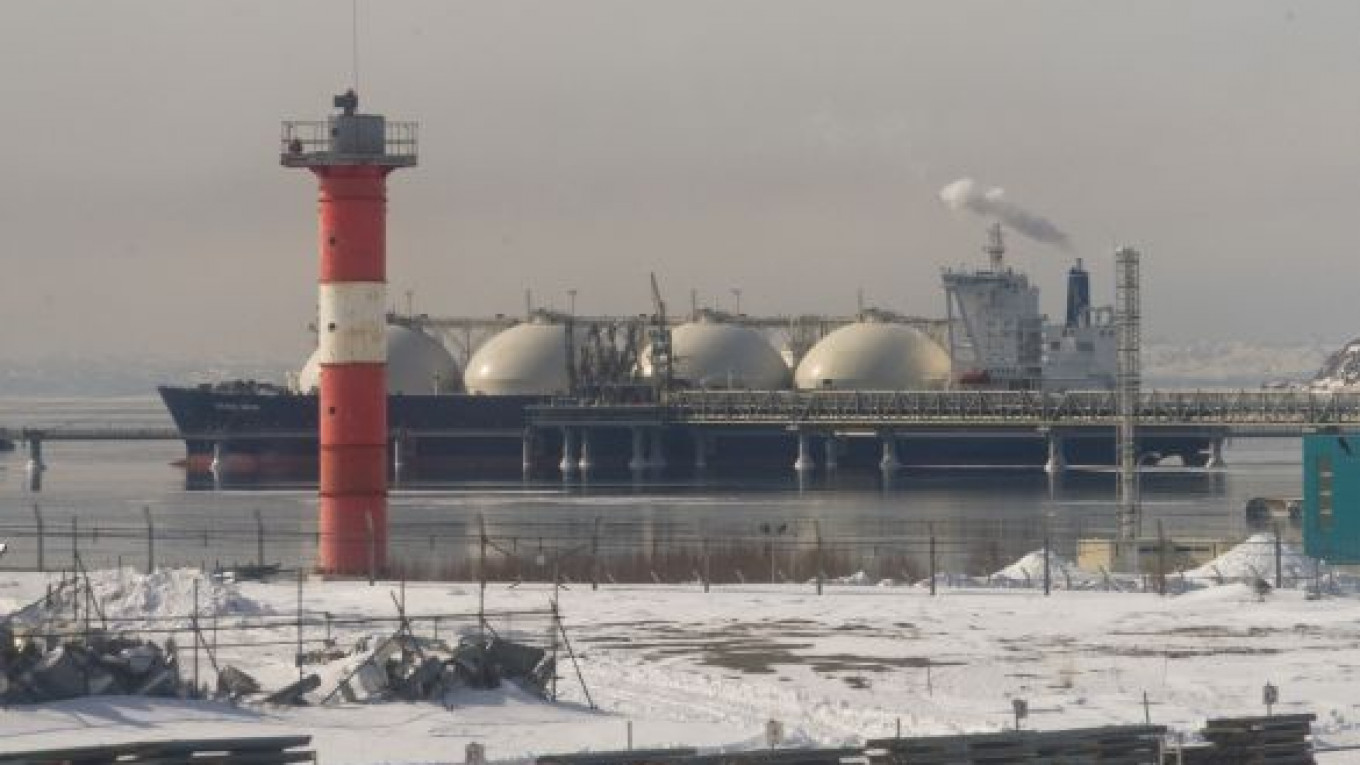Russia shipped a fifth of its overall liquefied natural gas production to Japan last year, in addition to the originally planned volume, as a response to the nuclear plant emergency there, a Gazprom-controlled company said Saturday.
"We responded in a timely manner to the energy needs of our neighbor, which dramatically rose last year in view of the devastating tsunami and the Fukushima disaster," Andrei Galayev, chief of the Sakhalin Energy consortium, said in a report. "The company promptly provided assistance by delivering extra cargoes of LNG to Japanese buyers to cover their energy shortfall."
It additionally supplied 2 million tons of the gas converted to a liquid by special equipment that cooled it to far below the freezing point, making it fit for loading onto tankers.
About a quarter of that amount came in addition to its original plans for output, while it diverted the rest from other customers, the company said.
Also owned by Royal Dutch Shell and Japan's Mitsui and Mitsubishi, Sakhalin Energy produced 10.7 million tons of LNG last year.
Then-Prime Minister Vladimir Putin offered to boost the deliveries after a tsunami crippled and shutdown the Fukushima plant in March last year.
All in all, 7.4 million tons, or 69.5 percent of total production, went to Japan last year, according to the company's sustainable development report.
Japan on May 5 switched off its last nuclear reactor for maintenance and tests against earthquakes and tsunamis, leaving the country without atomic power for the first time since 1970.
Until the Fukushima meltdown, nuclear power plants accounted for 30 percent of all energy generated in Japan. Ministers have predicted blackouts.
Japan has again requested additional volumes for this year, Sakhalin Energy said, without specifying the amount.
The company also disclosed that it managed to increase the capacity of its LNG plant by 11 percent to meet the bigger demand. It performed "debottlenecking and equipment adjustments" to step beyond the designed output of 9.6 million tons per year, the report said.
Galayev said the most important milestone for Sakhalin Energy, which broke even in March, was the start of gas deliveries to the domestic market. The gas — received by the government as royalty — goes to the power plant of Yuzhno-Sakhalinsk, the island's capital, and into Gazprom's Sakhalin to Vladivostok pipeline.
Sakhalin Energy also produced 5.76 million tons (45 million barrels) of oil last year. One more country, Indonesia, joined the club of the crude's buyers.
A Message from The Moscow Times:
Dear readers,
We are facing unprecedented challenges. Russia's Prosecutor General's Office has designated The Moscow Times as an "undesirable" organization, criminalizing our work and putting our staff at risk of prosecution. This follows our earlier unjust labeling as a "foreign agent."
These actions are direct attempts to silence independent journalism in Russia. The authorities claim our work "discredits the decisions of the Russian leadership." We see things differently: we strive to provide accurate, unbiased reporting on Russia.
We, the journalists of The Moscow Times, refuse to be silenced. But to continue our work, we need your help.
Your support, no matter how small, makes a world of difference. If you can, please support us monthly starting from just $2. It's quick to set up, and every contribution makes a significant impact.
By supporting The Moscow Times, you're defending open, independent journalism in the face of repression. Thank you for standing with us.
Remind me later.






